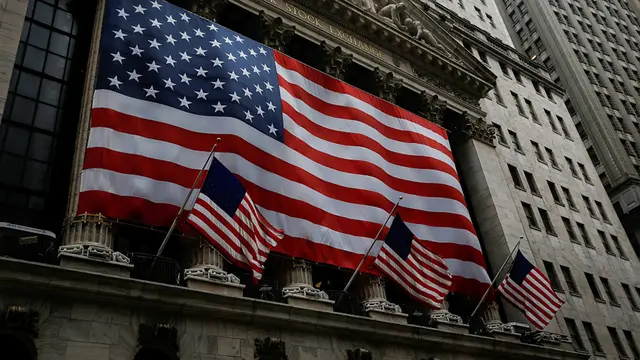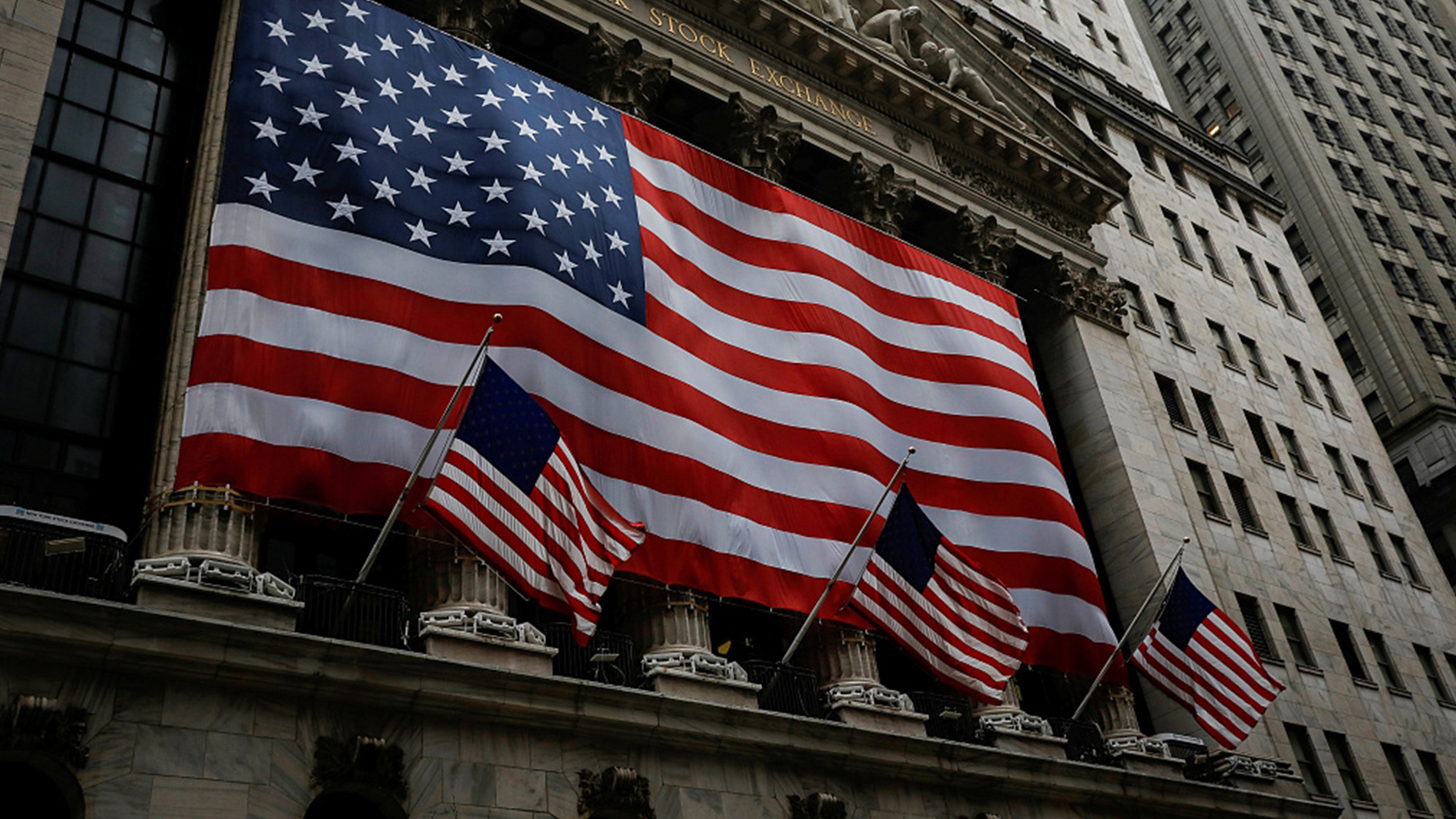
In a recent interview with CNN, former U.S. Ambassador to China Max Baucus said that the current U.S. government's anti-China rhetoric is reminiscent of the McCarthy era, whereas if anybody says anything reasonable about China, he or she will feel intimidated or afraid that his or her head will be chopped off.
There are certainly signs that McCarthyism is regaining momentum in many aspects of American society, as the current U.S. administration and Congress, as well as the media, are claiming that all things connected with China are a threat to the United States.
Background of McCarthyism in the Truman years
McCarthyism started in the Cold War period with the Truman Doctrine, when a senator named Joseph McCarthy began to punish all whose actions which were related to communism whether in or out of U.S. congress, exerting influence in the political, economic and cultural arenas.
Coincidentally, at the beginning of McCarthyism in the late 1940s, New China was founded in 1949.
Roosevelt's "China Hands," a number of foreign service officers whom his administration sent to China during the Dixie Mission, were accused by McCarthy as the ones who misled the U.S. government to lose China to the communists, and were forced out of the U.S. Foreign Service sector after saying all things that were positive about China.
An upgraded McCarthyism in Trump years
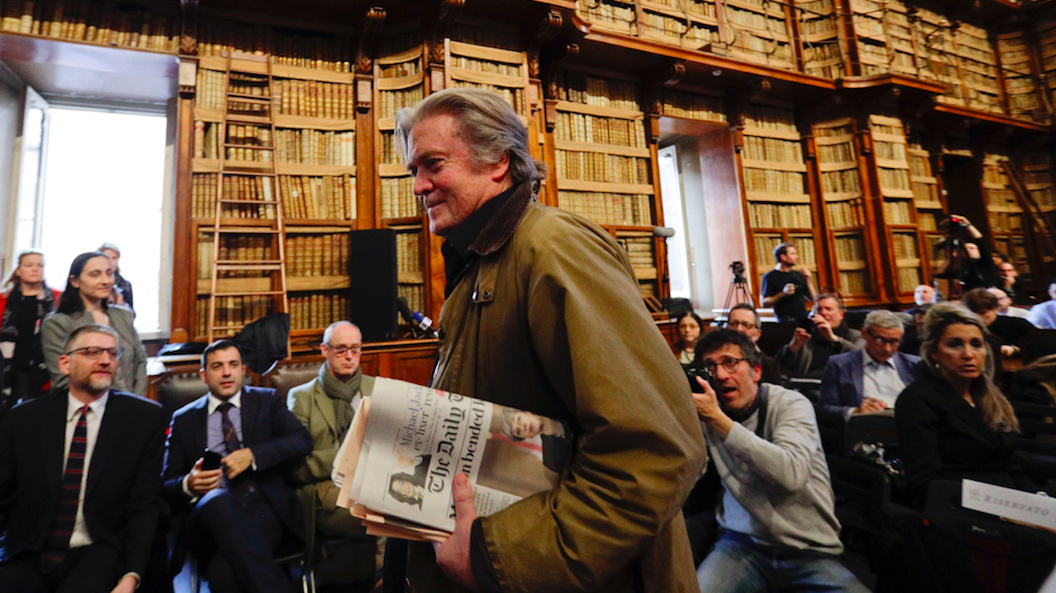
Former White House strategist Steve Bannon arrives to deliver his speech on the occasion of a meeting at Rome's Angelica Library, Italy, March 21, 2019. /AP
McCarthyism ended within a few years, but its ghosts seems to haunt the U.S. ever since.
It is gaining huge momentum in the Trump years, although Trump himself came as a political layman, many of his top officials are experienced politicians nevertheless who would create an anti-China narrative for everything, which pressures other officials to not speak freely on China.
First, Trump's former strategist Steve Bannon believes that China presents "the greatest existential danger" ever to the United States.
Second, Vice President Mike Pence made his notorious long speech on China in 2019 at the Wilson Center to reiterate that China is a "strategic and economic rival" rather than friends.
Third, Secretary of State Mike Pompeo lied about the U.S. sending medical materials to China and that the origin of COVID-19 is from a virology lab in Wuhan.
In order to mislead the American people intentionally, officials would use the mentioned lies and intimidation to demonize China, and hope they would gain votes in the elections. This forms a vicious cycle in American politics.
The Trump administration has updated the original term to a McCarthyism 2.0 of sorts, as hostility not only comes from a few top executive branch officials, but from a systematic all-out ideological war in all U.S. branches of government when it comes to China, which has caused great concern in the Sino-U.S. relations which should be taken seriously by both countries' politicians.
From April to May, the Senate, the House of Representatives and the White House launched their own strategies against China in an effort to put pressure on anything said by anyone that may be positive about China.
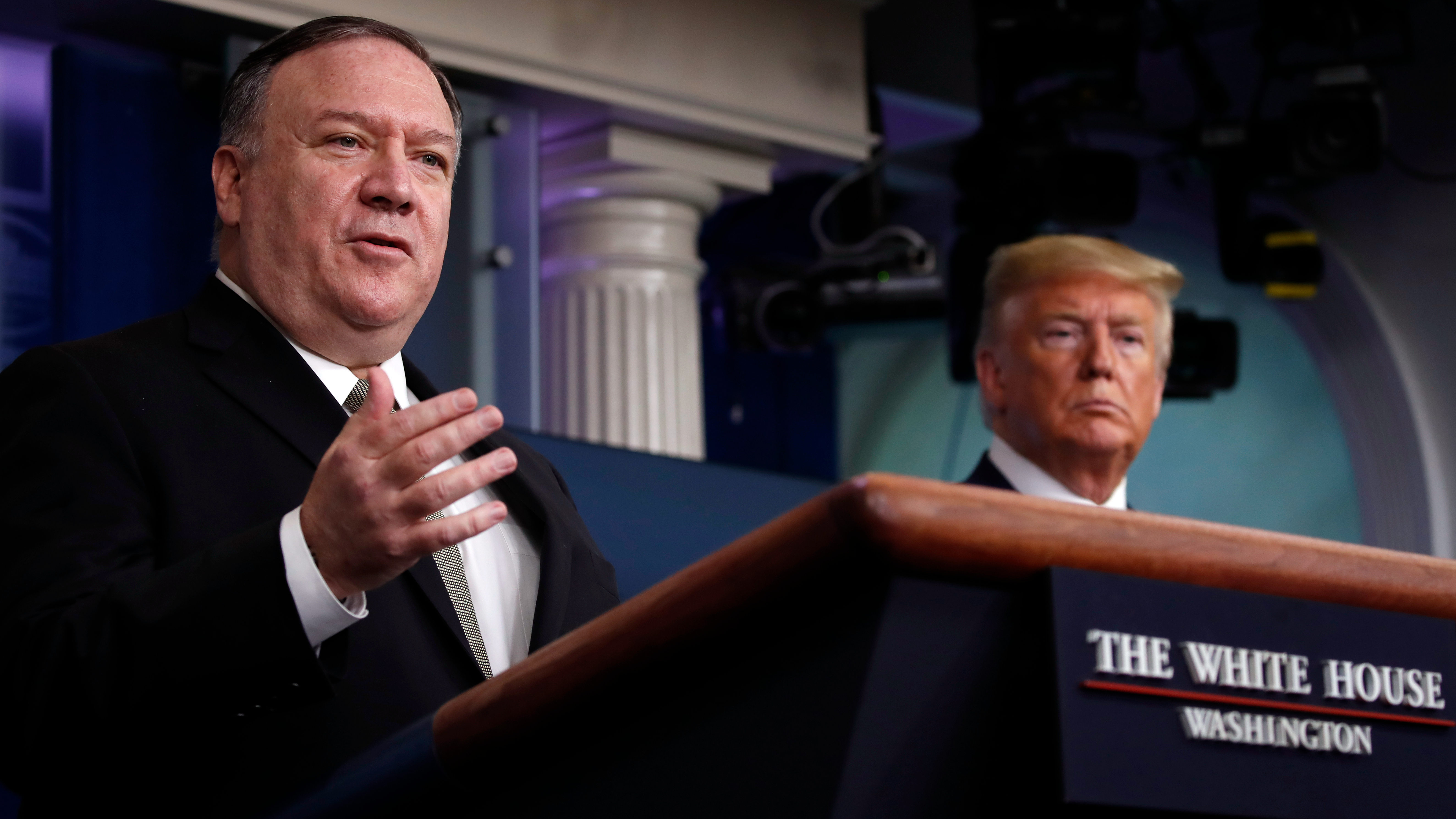
U.S. Secretary of State Mike Pompeo speaks about COVID-19 in the James Brady Press Briefing Room of the White House, U.S., April 8, 2020. /AP
First, Senate Republicans released a 57-page memorandum for Trump, using every method possible to blame China for the COVID-19 pandemic.
Second, two weeks later, House Minority Leader Kevin McCarthy created a new "China Task Force" without the Democrats' participation, which shuns all other voices about China.
Third, another two weeks after that, the White House published the 16-page "United States Strategic Approach to the People's Republic of China" on May 20, saying that the U.S.' stance and approach toward China has changed fundamentally in order to respond to Beijing's "growing propaganda challenge," which may also be seen as of double standard on free speech about world events.
The U.S. should face the reality or it will be isolated
Why does the U.S. continue to fear China?
The U.S. is in fear of its hegemony being challenged by an emerging country, and while that may happen in the future, the superpower may no longer be the leading economy, and its influence may be weakened relatively, as considered in the Thucydides Trap, that when a rising power challenges the dominance of an established power, that dominant power will respond with violence.
The U.S. won't realize that China is not the Soviet Union, and as Harvard professor Graham Allison mentioned in his recent article "The New Spheres of Influence" published in Foreign Affairs suggesting the U.S. should get used to China and Russia's "spheres of influence," the U.S. needs to face reality and cooperate with China and other key players.
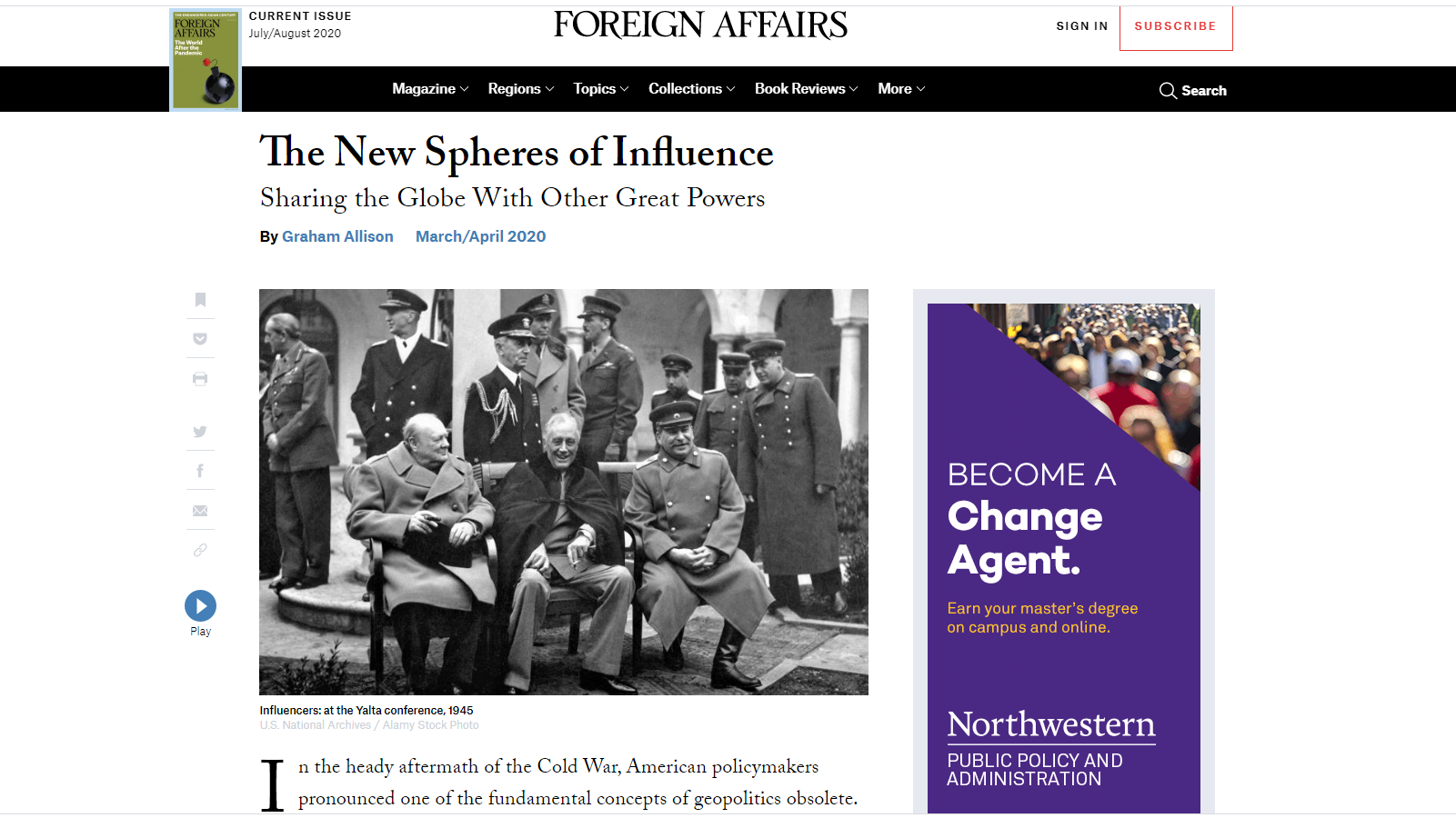
Screenshot of Allison's article.
The U.S. in 2020 is also very different from what it was during World War II and in the Cold War.
Because of Trump's anti-institutional actions of taking the U.S. unilaterally out of many international and regional organizations and institutions, the U.S. image in the world became an exceptional isolationist fragment piece of the puzzle; as a result, its allies in Europe such as France and Germany are searching for their own destiny.
When the U.S. "roars" in front of China, not many countries "wag their tails."
These factors show that the Trump administration does not have the capability to take real actions toward China, otherwise it will become isolated abroad.
The world should get prepared
However, the world should be alarmed by the updated McCarthyism in the U.S., because the world is showing signs that it may be returning to a time of many far-right conservative parties on the rise in Europe, which is how the two World Wars started, not to mention a lean-conservative administration is developing its conservatism theory in America, and nationalism has been often exploited by populist conservatism movements in recent years.
"In the short term, because of the elections in November, U.S. politicians from both parties are taking China as a tool to gain popularity to attract more votes. It is worrying that the ideological war against China will influence the humanities and educational field the most," said Sun Chenghao, an assistant research professor at the Institute of American Studies of China Institutes of Contemporary International Relations.
That may be a rational and cautious way to view the relations.
However, if the appeasement to U.S. McCarthyism continues, then the exploited populist movement will get out of control and may turn into Nazism.
The world must be prepared for any worsening situation.
(If you want to contribute and have specific expertise, please contact us at [email protected].)
 简体中文
简体中文

